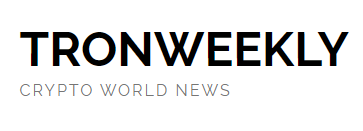You are here: Home / News / Altcoin News / XRP’s Defining Moment: 3 Critical Flaws in SEC’s Appeal Strategy

January 16, 2025 by Lipika Deka
- The SEC filed an appeal against Ripple, arguing that XRP sales constitute unregistered securities offerings.
- The SEC contends that Ripple’s marketing efforts created a perception of value for XRP, supporting its classification as a security.
- Attorney Jeremy Hogan criticized the SEC’s brief as “lackluster,” highlighting potential pitfalls for the regulator in the appeal process.
XRP takes center stage as SEC seeks to challenge Ripple Labs’ ruling. In a last-minute brief filed, the regulator reiterated that Ripple’s offers and sales of XRP constitute investment contracts and are classified as securities under federal law. They assert that these transactions violated Section 5 of the Securities Act of 1933 because they were not registered, depriving investors of necessary disclosures.
The SEC argues that Ripple’s extensive marketing strategies were designed to create a perception of value and use for XRP, further supporting the classification of it as a security.
In its conclusion, the regulator maintains that the district court erred in its factual findings regarding the nature of Ripple’s sales to public buyers and the non-cash consideration received by Ripple.
Attorney Jeremy Hogan has shared his initial reaction describing SEC’s opening brief as “lackluster” and almost as if “the drafter knew he was wasting his time.” He points out that a significant position of the brief was devoted to repeating the trial court’s ruling. The crux of the SEC’s argument, per Hogan, is that it does not have to prove that XRP purchasers were aware of Ripple’s statements about increasing XRP’s price.
XRP: SEC’s Ripple Appeal Could Backfire Spectacularly
Hogan also criticized the SEC’s inability to present evidence that actual retail XRP purchasers were aware of Ripple and its statements, despite the thousands of affidavits submitted by attorney John E. Deaton.
 Source: Jeremy Hogan
Source: Jeremy HoganHe believes that this appeal could backfire on the SEC. If the ruling on retail sales is upheld (which Hogan considers likely), it would set a precedent requiring the SEC to prove knowledge of promotional statements.
This, as per him, would be a costly and time-consuming endeavor for the regulator. Additionally, this appeal provides an opportunity for Ripple to reassert its “investment contracts require contractual obligations” argument before the appellate court, which could further weaken the SEC’s case.
It makes no sense to me but, what do I know; I’m sure Gensler and the two other Dem commissioners who decided to pursue this (and are currently brushing up their resumes) know better.

 9 months ago
60
9 months ago
60




 English (US) ·
English (US) ·